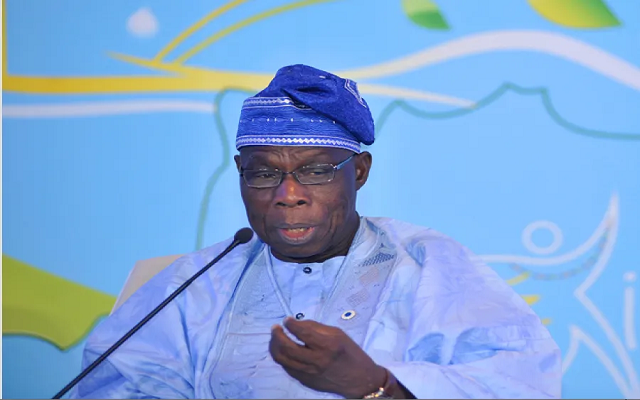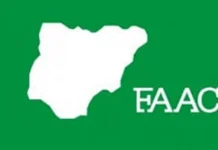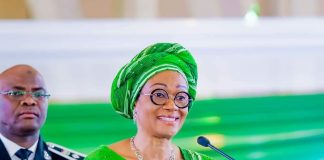Former President Olusegun Obasanjo has made an inroad into the garment business in Nigeria with the establishment of a factory, Heritage Apparel, in Abeokuta, Ogun State. The opening of the garment factory comes at a period the President Muhammadu Buhari’s administration is tailoring its policy to favour entrepreneurs in the clothing and textile market.
Obasanjo situated the garment factory at the premises of the Olusegun Obasanjo Presidential Library. The former president is mostly known for his interest in the agricultural sector, which has resulted in the popular Ota Farm also in Ogun State.

Comrade in arms: Obasanjo established the garment factory in collaboration with Abisade Adenubi, an entrepreneur whom the two-time President said convinced him into setting up the business. Obasanjo, however, said the initiative was from him.
“After the initiative from me, the one who has taken it to the greatest height is this young woman, Abisade, and the credit for where we are today should go to her.”
He advised other entrepreneurs to “come and learn from her and she will tell them the problems she encountered, including the problem of convincing me to have what we have here today.”
Stop outsourcing economic development: Meanwhile, Adenubi, a United Kingdom-based Nigerian, said prior to setting up Heritage Apparel with Obasanjo, she had been producing apparel in Europe and Asia. According to her, Nigerians need to take responsibility for developing Nigeria’s economy rather than allowing foreigners to do the development.
“It is my firm belief that we should not be outsourcing our economic development. I think we have a responsibility to empower our local people to exploit their potential despite economic hardships. That is why we have decided to come over here and see what we can do to improve on our garment industry,” Adenubi said.
She added that the company looks to raise awareness to local fabric (Adire) in Abeokuta which is known for its tie and dire materials.
Competition awaits Obasanjo: Although Heritage Apparel will be operating in a market saturated with small businesses, it will still have to compete with the likes of Nike Art Gallery and Sam & Sara Garment Factory. The textile and garment business is a nascent market with revenue potential but the entry-barrier level is low which gives room for new entrants, thereby, constantly raising competition level.
Meanwhile, President Muhammadu Buhari’s administration is supporting the growth of the textile market in Nigeria by developing policies in favour of the industry. According to the Central bank of Nigeria (CBN), developing small businesses like textile/garment industries brings about the growth of the country, creates employment and boosts the foreign reserve of the nation. Recall that the CBN placed textile on forex banned list.
What you need to know: Nigeria’s textile was once recognised as Africa’s largest textile industry with over 180 textile mills in operations, employing close to over 450,000 people, and contributing over 25% of the workforce in the manufacturing sector. But now, most of the factories have all stopped operations, with about 25 textile factories operational below 20% of their production capacity, and the workforce of the textile industry stands at less than 20,000 people.
Source: Nairametrics












